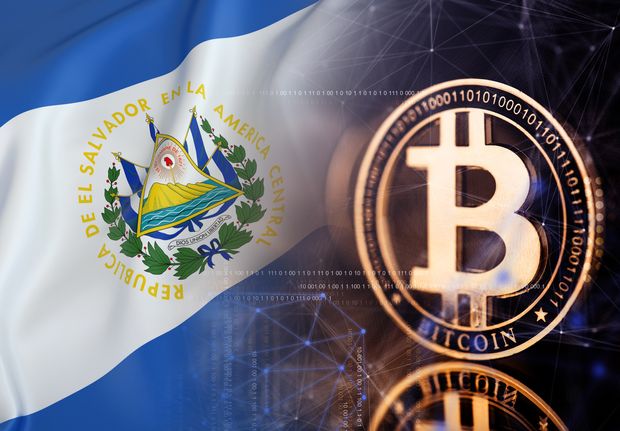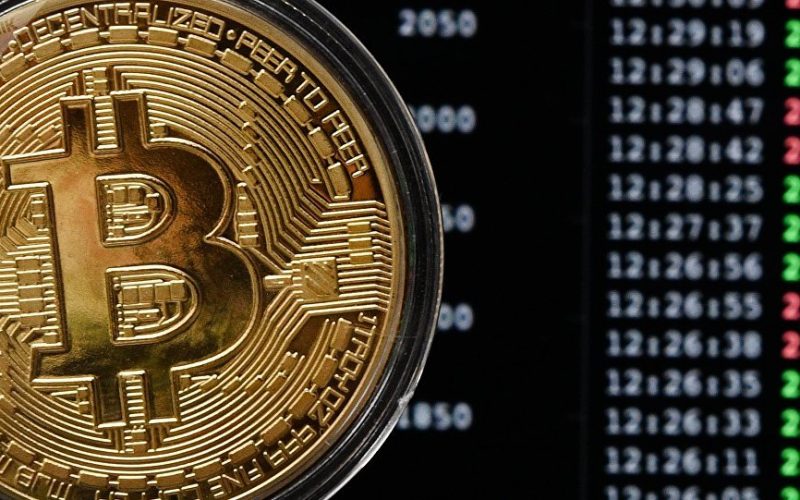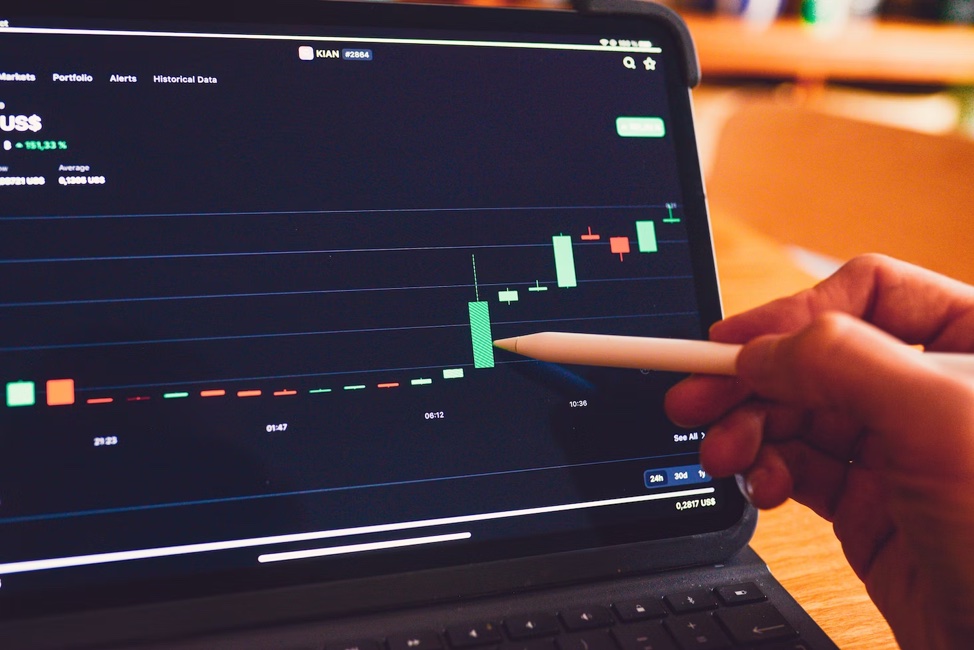Are we living in the time of the cryptocurrency war? There is a battle going on between the so called “guardians” of the international financial system and the defenders of cryptocurrencies.
“It’s a shit coin,” New York University economist Nouriel Roubini said a while ago, referring to Bitcoin, the world’s largest digital currency.
Tycoon Warren Buffett, for his part, assured that cryptocurrencies are one of the worst bubbles of all time.
And Bank of England President Andrew Bailey warned a few weeks ago: “Buy if you’re prepared to lose all your money.”
Among the crypto skeptics are also Nobel Prize winners in economics Joseph Stiglitz, Paul Krugman and Robert Shiller, although they no longer prophesy that these coins will disappear at once. These are part of one side of the cryptocurrency war.
Cryptocurrency war brings total market value to over US$ 2 trillion
 In the last year, the cryptocurrency market has grown, reaching a total market value estimated at around US$ 2 trillion. And it continues to expand regardless of all regulations.
In the last year, the cryptocurrency market has grown, reaching a total market value estimated at around US$ 2 trillion. And it continues to expand regardless of all regulations.
Nobody has control of the cryptocurrencies — no government, no central bank, no companies.
Despite this fact (and the ongoing cryptocurrency war), El Salvador this week became the first country in the world to adopt bitcoin as its currency.
Because they work with a decentralized technology called the blockchain, cryptocurrency transactions do not require an intermediary or an agency to validate them.
Through a huge network of computers with “knots” spread around the world, it uses cryptographic methods to protect the information contained in money transfers and in the creation of new units.
This operating autonomy makes the millions of dollars circulating in its networks difficult for governments, central banks and regulatory bodies to control and supervise.
Cryptocurrency war: ‘We are at a crossroads’
On the other side of the cryptocurrency war are those who promote the use of cryptocurrencies and are convinced that their expansion is inevitable.
They not only see them as a profitable long-term investment opportunity, but as a paradigm shift in the international monetary system.

They believe this market will shake the world of politics, economics and finance. “We are at a crossroads,” says Javier Pastor, commercial director of the cryptocurrency trading platform Bit2Me, in an interview with BBC News Mundo, the BBC’s Spanish-language service.
“Cryptocurrencies are going to change the world in the same way the internet has changed,” he adds, ensuring that we are witnessing the birth of a new stage in the history of the evolution of money.
“The money that central banks print endlessly will be worth absolutely nothing in a few years. It will die in the face of the technological innovation of cryptocurrencies,” he says.
Bitcoin defenders stand firm in the cryptocurrency war
One of the most famous proponents of bitcoin and cryptocurrencies is Jack Dorsey, CEO of Twitter and Square. He stands firmly on the side defending bitcoin in the cryptocurrency war.
“The reason I have so much passion for #Bitcoin is largely because of the model it demonstrates: the foundational internet technology that is not controlled or influenced by any single individual or entity. This is what the internet wants to be, and over time, more of it will be.”
The reason I have so much passion for #Bitcoin is largely because of the model it demonstrates: a foundational internet technology that is not controlled or influenced by any single individual or entity. This is what the internet wants to be, and over time, more of it will be.
— jack (@jack) January 14, 2021
“#bitcoin changes *everything*…for the better. And we will forever work to make bitcoin better.”, he tweeted.
#bitcoin changes *everything*…for the better.
And we will forever work to make bitcoin better. https://t.co/wssrF2U0P0
— jack (@jack) May 14, 2021
And in another post, he wrote that “Yes, and I agree: no single person (or institution) will be able to change it, or stop it”.
Dorsey is so convinced of this that, in 2018, he declared that he believed bitcoin would be “the only currency in the world in 10 years”.
And in January of this year, when the Financial Crime Control Network (FinCen) proposed a law requiring companies to report the names and addresses of people who trade in cryptocurrencies above $3,000 to monitor illicit transactions, Dorsey objected in an open letter.
Bitcoin’s role: “I don’t think anyone can erase it now”
 Changpeng “CZ” Zhao, CEO of Binance, the world’s largest cryptocurrency trading platform in terms of transaction volume, warned a few days ago that it was impossible for an entity to destroy bitcoin and its underlying technology, the blockchain.
Changpeng “CZ” Zhao, CEO of Binance, the world’s largest cryptocurrency trading platform in terms of transaction volume, warned a few days ago that it was impossible for an entity to destroy bitcoin and its underlying technology, the blockchain.
“I don’t think anyone can erase it now, as this technology, this concept, is on the minds of 500 million people,” he argued at CoinDesk’s Consensus 2021 web conference.
Zhao added that governments and regulators should embrace blockchain technology and cryptocurrencies — and that fighting them is akin to rejecting Amazon’s business model in the early 1990s.
The cryptocurrency war is not here to end traditional finance or government-backed currencies, but to bring more “freedom of money”.
Cryptocurrencies “can threaten the monetary sovereignty of any country”
“There is little money in the cryptocurrency market, and they do not pose a threat to the financial system for the time being,” Josh Lipsky, director of the Geoeconomic Center of the international analyst organization Atlantic Council, in the United States, tells BBC World News, when asked about Bitcoin and the cryptocurrency war.
However, he warns that their rapid growth in just a few months has made them more important.
“In a year we could see further expansion of the cryptocurrency market. That’s why regulators around the world are thinking about what kind of new standards might be needed,” says Lipsky.
The biggest risk of cryptocurrencies is that “they can threaten the monetary sovereignty of any country”, says the senior adviser to the former director of the International Monetary Fund (IMF), Christine Lagarde.
“If you, as a central bank, don’t know how much money has been spent and transferred in your country, that has huge implications for your monetary policy and for how you measure inflation and interest rates. tax”, he adds.
“All countries should be concerned about the loss of monetary sovereignty. They cannot lose control of how much money is printed and spent.”
Cryptocurrency war brings extreme volatility to an already volatile market
The truth is, Bitcoin is as explosive as it is volatile. In April, it broke its all-time record when the price soared to $64,870. But within a month it lost half its value in a sharp fall driven by two big blows.
First, the statement from Elon Musk in mid-May saying that Tesla will no longer accept Bitcoin as a form of payment because of the the environmental impact linked to cryptocurrency mining.
This argument is based on the fact that bitcoin mining requires a huge consumption of energy to operate the powerful computers needed to obtain new coins.
And the problem is that much of this energy comes from fossil fuels that are harmful to the environment.
The second blow came a few days later, when the Chinese government imposed new regulations on cryptocurrency transactions.
The price dropped to around $30,000, although in the following days it recovered part of its losses.
Some experts say these boom and bust cycles will go on for a long time, and therefore those who invest thinking they can get rich quickly should shift their mindset to more long term investing. In any case, it’s clear that the cryptocurrency war is not going away any time soon.





